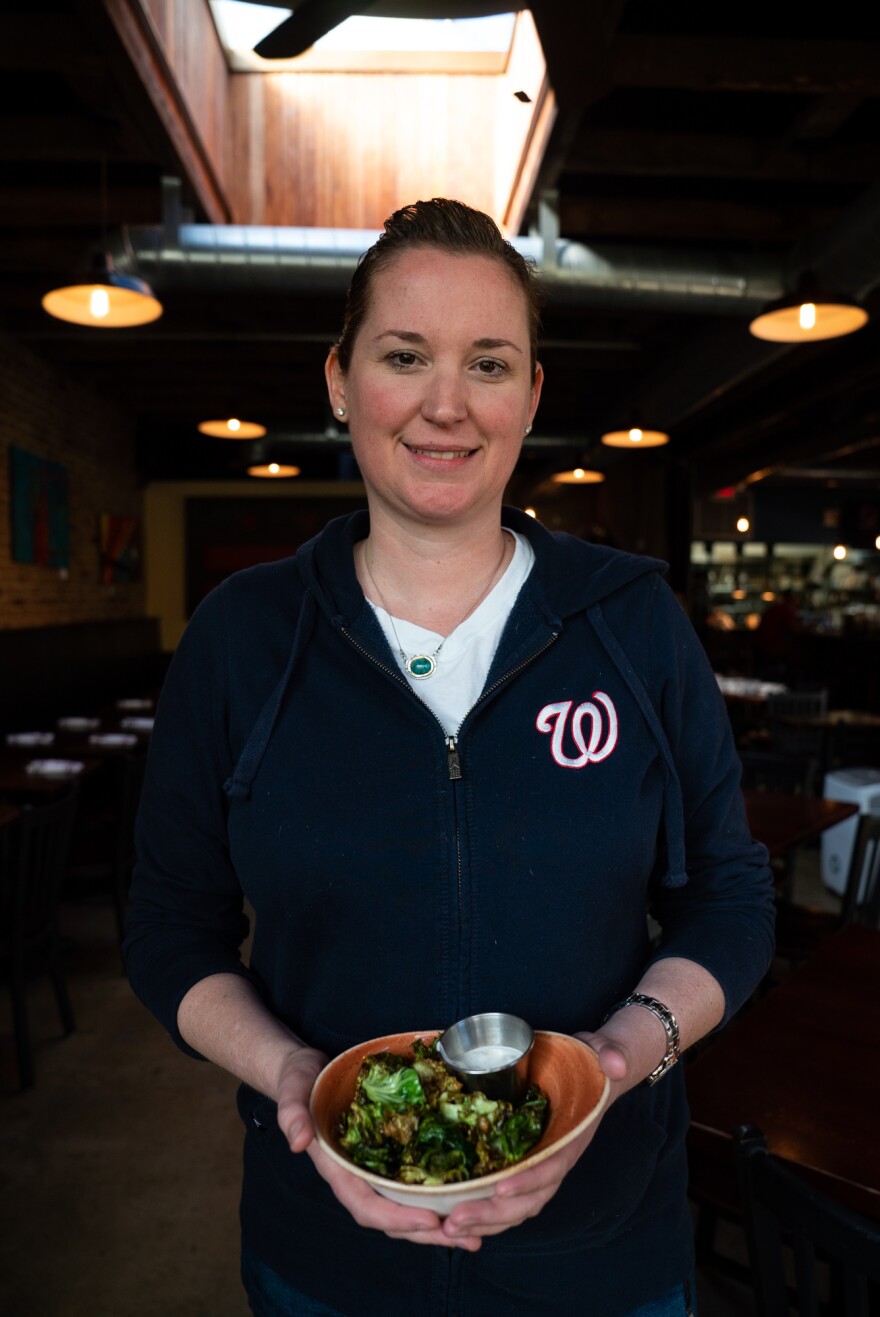Foods go in and out of style. Few of them, though, have gone through as dramatic a renaissance in their reputation as Brussels sprouts.
For many years, they were scorned. Even Steve Bontadelli admits it, and he makes his living growing them. "A lot of people of my generation hated them," he says. "Their moms boiled them and made them even stinkier."
Bontadelli's farm is near Santa Cruz, Calif., where the weather is perfect for growing this vegetable. "We actually had a Brussels sprouts festival here for about 10 years," he says. "And we got a lot of free press out of the deal, because people couldn't believe that you'd have a festival for Brussels sprouts."
What's worse, they even deserved their bad reputation. "They were just very bitter; a very strong bitter taste," Bontadelli says.
This all started to change in the 1990s, and it began in the Netherlands, where Brussels sprouts have a simpler name: spruitjes. A Dutch scientist named Hans van Doorn, who worked at the seed and chemical company Novartis (the seed part is now called Syngenta), figured out exactly which chemical compounds in spruitjes made them bitter.
At that point, the small handful of companies that sell Brussels sprouts seeds started searching their archives, looking for old varieties that happen to have low levels of the bitter chemicals.
One of the companies, also based in the Netherlands, is Bejo Zaden. "We have a whole gene bank here in our cellars, with all the possible Brussels sprouts varieties that were available from the past," says Cees Sintenie, a plant breeder at Bejo Zaden.

There are hundreds of these old varieties. The companies grew them in test plots, and they did, in fact, find some that weren't as bitter. They cross-pollinated these old varieties with modern, high-yielding ones, trying to combine the best traits of old and new spruitjes. It took many years. But it worked. "From then on, the taste was much better. It really improved," Sintenie says.
Then word spread in the professional culinary scene. It took off mainly in the United States, not in Europe.
Shannan Troncoso remembers hearing, about a decade ago, that celebrity chef David Chang was doing amazing things with Brussels sprouts and bacon at his restaurant Momofuku, in New York. Then she encountered some crispy fried Brussels sprouts at a restaurant in San Francisco. "It was so good, I was like, I can figure this out! And I can introduce this back into my area," she says.

When she launched her own restaurant — Brookland's Finest Bar & Kitchen, a neighborhood establishment in Northeast Washington, D.C. — they were on the menu from very beginning.
"We peel the leaves off, each tiny little leaf. That's like a full-time job for somebody," she says. The actual cooking takes no time at all. Troncoso drops a basket of leaves into the fryer. Within seconds, they're turning brown. She pulls them out, lets them drain for a bit, then tosses them with a bit of lemon juice and salt.
Troncoso says that her customers had to be talked into ordering them at first. "People are kind of like, 'ugh, Brussels sprouts,' " she says. But now it's one of her most popular dishes.

This has been happening in lots of places, just in the past five years or so. And the world has now changed for Steve Bontadelli, back on the farm in Santa Cruz. "Lo and behold, all of a sudden we're on cooking shows!" he says.
Demand is booming; farmers are getting four or five times more money than they did a decade ago for their crop. "My dad, his jaw would just drop," Bontadelli says. "He'd ask me every day, 'What's the price, what's the price?' Because he'd been in the business his whole life. His eyes would just pop out when I'd tell him. He couldn't believe it."
Bontadelli says that there were only about 2,500 acres in the whole country planted with Brussels sprouts just a few years ago. Today, there are 10,000 acres of Brussels sprouts in the U.S., and fields are getting planted in Mexico, too — just so people can get their Brussels sprouts year-round.
Copyright 2020 NPR. To see more, visit https://www.npr.org. 9(MDAxODc0NzU5MDEyMTgyMDUxMzlkN2IzMw004))



